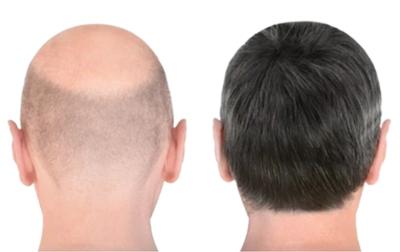Your hair can provide valuable clues about your overall health and well-being. Here are four things that your hair can indicate about your health:
Nutritional Deficiencies: Hair health is influenced by the nutrients you consume. A lack of essential vitamins and minerals, such as iron, zinc, biotin, and protein, can lead to hair problems like thinning, dryness, and brittleness. Dull and lifeless hair may also be a sign of poor nutrition.
Hormonal Imbalances: Hormones play a significant role in hair growth and health. Imbalances in hormones, such as those related to thyroid disorders, polycystic ovary syndrome (PCOS), or menopause, can contribute to hair loss or changes in hair texture.
Stress and Illness: Experiencing significant physical or emotional stress, as well as undergoing illness or major surgery, can lead to a condition called telogen effluvium. Telogen effluvium causes excessive shedding of hair and is usually temporary. However, it’s essential to address the underlying cause to promote hair regrowth.
Autoimmune Conditions: Some autoimmune disorders, such as alopecia areata, involve the immune system mistakenly attacking hair follicles, leading to sudden and patchy hair loss. The appearance of bald patches or areas of complete hair loss may be indicative of such conditions.
It’s important to remember that hair changes can result from a combination of factors, and interpreting hair-related health signs should be done in conjunction with other symptoms and medical evaluations. If you notice significant changes in your hair’s appearance or experience unexplained hair loss, it’s advisable to consult with a healthcare professional or a dermatologist. They can assess your overall health, perform relevant tests, and provide guidance on potential underlying causes and appropriate treatments. Addressing any health issues early on can contribute to improved hair health and overall well-being.



